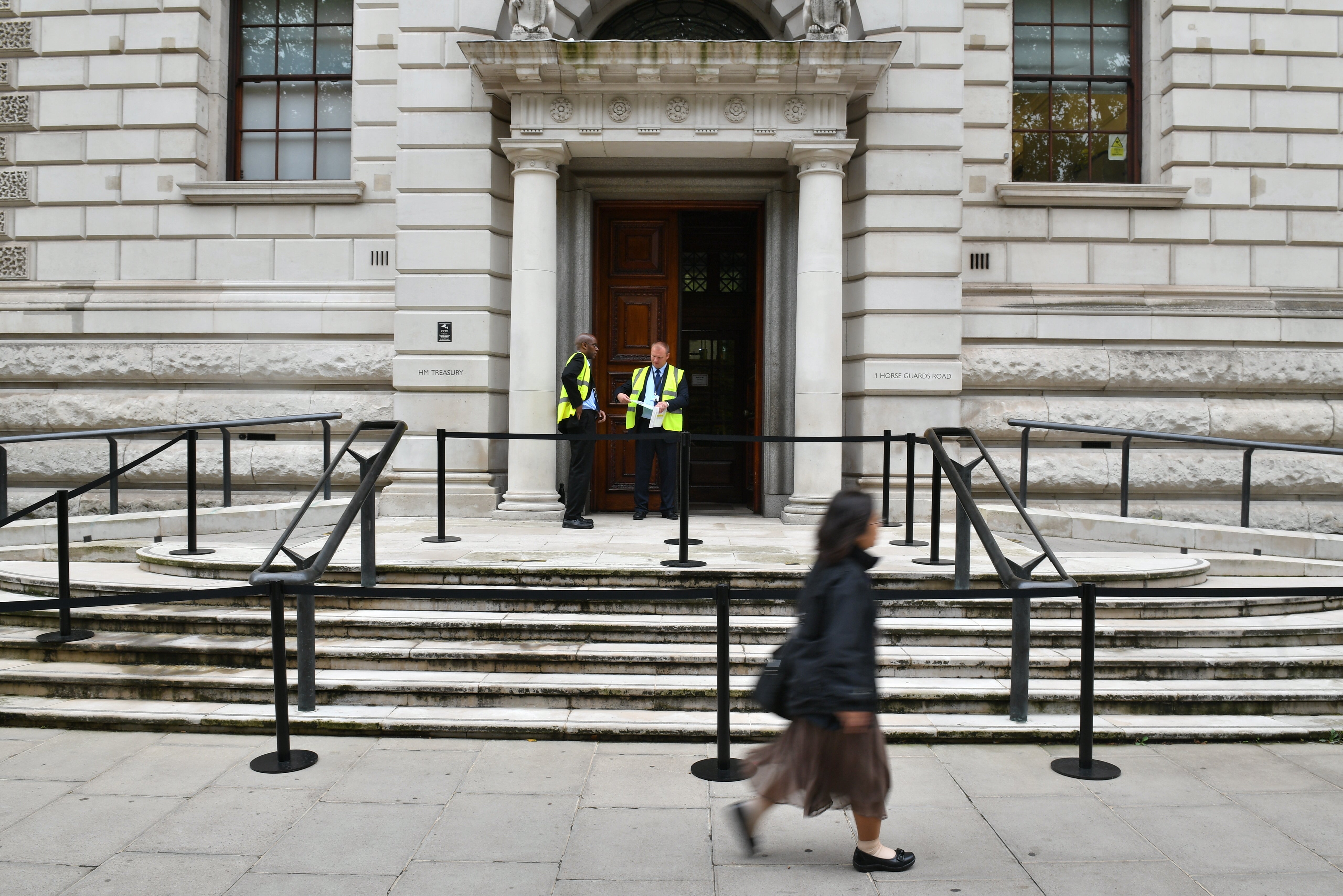Inflation fuels jump in government debt costs as borrowing hits £4.9bn
Borrowing for July significantly ahead of predictions of analysts

Your support helps us to tell the story
From reproductive rights to climate change to Big Tech, The Independent is on the ground when the story is developing. Whether it's investigating the financials of Elon Musk's pro-Trump PAC or producing our latest documentary, 'The A Word', which shines a light on the American women fighting for reproductive rights, we know how important it is to parse out the facts from the messaging.
At such a critical moment in US history, we need reporters on the ground. Your donation allows us to keep sending journalists to speak to both sides of the story.
The Independent is trusted by Americans across the entire political spectrum. And unlike many other quality news outlets, we choose not to lock Americans out of our reporting and analysis with paywalls. We believe quality journalism should be available to everyone, paid for by those who can afford it.
Your support makes all the difference.Interest payments on government debt jumped by almost 40 per cent last month as rocketing inflation continues to add to state borrowing, according to official data.
The Office for National Statistics (ONS) said government borrowing hit £4.9 billion in July.
It is significantly ahead of the predictions of analysts, who had forecast £2.8 billion in borrowing last month, and brings the total budget deficit for the year so far to £55 billion.
Nevertheless, borrowing was £0.8 billion below levels from the same month last year, but represented a £5.9 billion surge from pre-pandemic levels in 2019, when the government reported a surplus of £0.9 billion.
It came as debt interest payments climbed to £5.8 billion in July, lifting from £3.5 billion in the same month last year due to increases in Retail Price Index (RPI) inflation.
Earlier this week, the ONS revealed that RPI leapt to 12.3 per cent, while the broader Consumer Price Index (CPI) inflation figure hit a new 40-year-high of 10.1 per cent.
In response, chancellor Nadhim Zahawi said: “I know that rising inflation is creating challenges for families and businesses, and it is also putting pressure on the public finances by pushing up the amount we spend on debt interest.
“To help people during this difficult time, Government support is continuing to arrive in the weeks and months ahead, targeted to those who need it most, like pensioners, people on low incomes, and those with disabilities.
“We are taking a balanced approach: safeguarding the public finances while providing significant help for households.”
Government spending increased by £3.4 billion to £76.5 billion in July compared with the same month year, the ONS added.
The balance of risks to public finances has clearly shifted to the downside
Michal Stelmach, senior economist at KPMG UK, said the latest figures will mean “tough choices” for the next chancellor following the Conservative leadership election.
He added: “Public sector net borrowing continued to overshoot expectations in July, with year-to-date outturn now coming in £3 billion higher than the OBR’s forecast for the first four months.
“The balance of risks to public finances has clearly shifted to the downside.
“The cost-of-living crisis will likely require further support to households, while a slowing economy will put downward pressure on receipts, making the fiscal targets ever less achievable.”